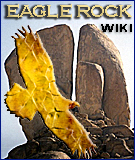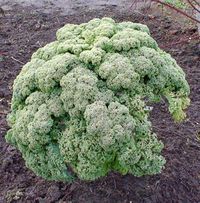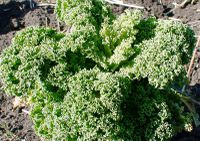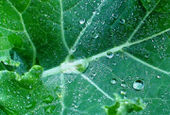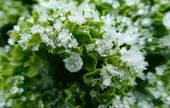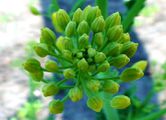Difference between revisions of "Kale"
| Line 3: | Line 3: | ||
== Chunks of information == | == Chunks of information == | ||
| − | == Cultivation instructions == | + | === Cultivation instructions === |
See [http://jeresearchtopics.blogspot.com/2011/03/kale.html Kale, in Research Topics] linking to several articles with cultivation instructions. | See [http://jeresearchtopics.blogspot.com/2011/03/kale.html Kale, in Research Topics] linking to several articles with cultivation instructions. | ||
| + | |||
| + | === Planting kale late in the season === | ||
| + | year i planted kale or borecole around September. That was a little late in the season but the plants still grew to reasonable size before frost set in. It was a cold winter but this sturdy plant survived several weeks of freezing temperatures. A bigger problem were wild rabbits who, when all the land was covered with snow, found my garden to be a nice storeroom. They ate most of the leaves but to my happy surprise the plants began growing new leaves in spring. In recent days the top leaves showed signs that the plants are preparing to make flowers. That's the end of harvest so i decided to take out all plants today except one that i'll keep for getting new seeds. | ||
| + | [[File:Kale plant in spring.JPG|200px|thumb|right|A kale plant that was eaten by rabbits but grew out again in the spring. You can see the yellowish leaves in the top that are forebodes of the plant going to shoot out and make flowers. ]] | ||
== Gallery == | == Gallery == | ||
Revision as of 16:54, 28 December 2011
Chunks of information
Cultivation instructions
See Kale, in Research Topics linking to several articles with cultivation instructions.
Planting kale late in the season
year i planted kale or borecole around September. That was a little late in the season but the plants still grew to reasonable size before frost set in. It was a cold winter but this sturdy plant survived several weeks of freezing temperatures. A bigger problem were wild rabbits who, when all the land was covered with snow, found my garden to be a nice storeroom. They ate most of the leaves but to my happy surprise the plants began growing new leaves in spring. In recent days the top leaves showed signs that the plants are preparing to make flowers. That's the end of harvest so i decided to take out all plants today except one that i'll keep for getting new seeds.
Gallery
See also
External links
- Kale Research Topics
- Kale "Kale is considered to be a highly nutritious vegetable with powerful antioxidant properties; kale is considered to be anti-inflammatory. Kale is very high in beta carotene, vitamin K, vitamin C, lutein, zeaxanthin, and reasonably rich in calcium. Kale, as with broccoli and other brassicas, contains sulforaphane (particularly when chopped or minced), a chemical believed to have potent anti-cancer properties." - Wikipedia
